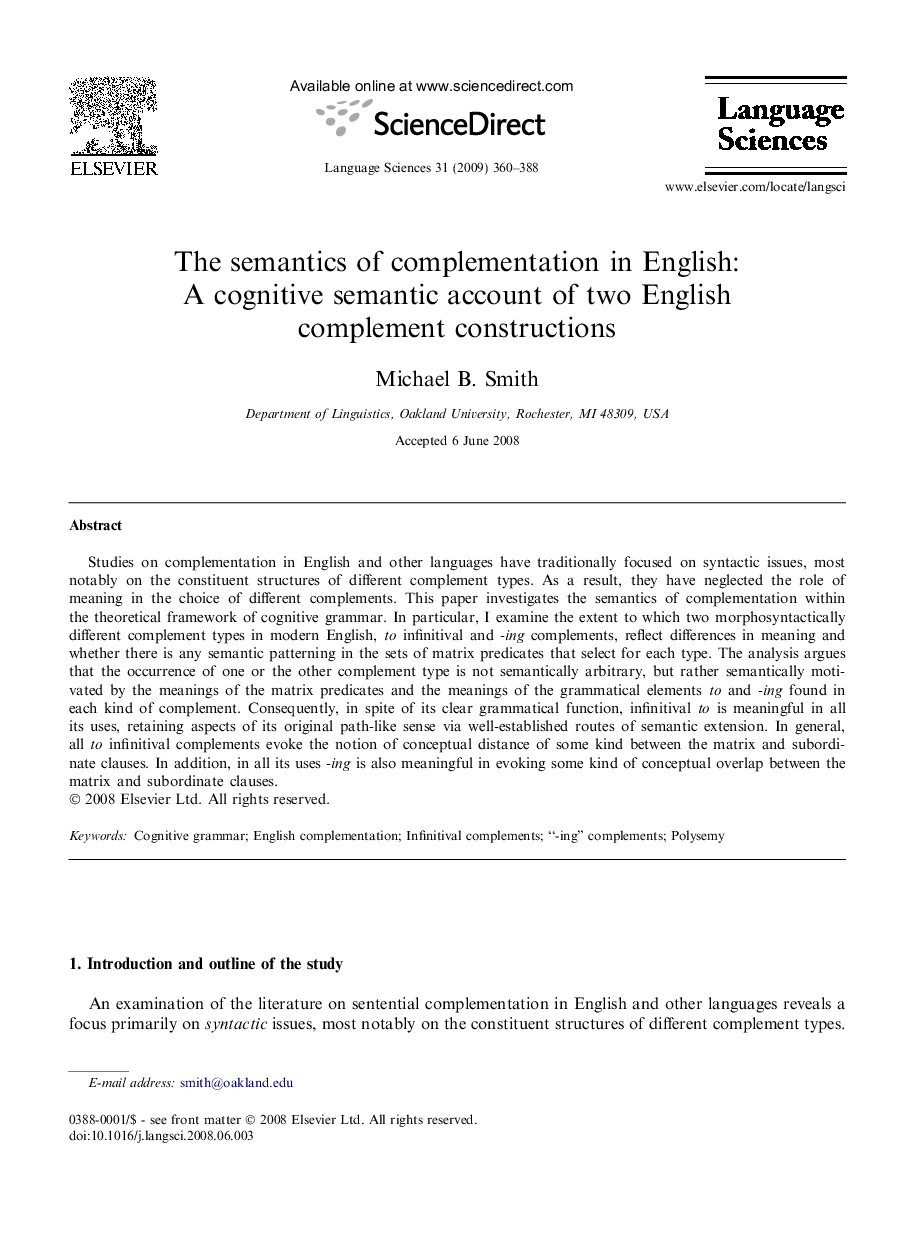| کد مقاله | کد نشریه | سال انتشار | مقاله انگلیسی | نسخه تمام متن |
|---|---|---|---|---|
| 1103579 | 953752 | 2009 | 29 صفحه PDF | دانلود رایگان |

Studies on complementation in English and other languages have traditionally focused on syntactic issues, most notably on the constituent structures of different complement types. As a result, they have neglected the role of meaning in the choice of different complements. This paper investigates the semantics of complementation within the theoretical framework of cognitive grammar. In particular, I examine the extent to which two morphosyntactically different complement types in modern English, to infinitival and -ing complements, reflect differences in meaning and whether there is any semantic patterning in the sets of matrix predicates that select for each type. The analysis argues that the occurrence of one or the other complement type is not semantically arbitrary, but rather semantically motivated by the meanings of the matrix predicates and the meanings of the grammatical elements to and -ing found in each kind of complement. Consequently, in spite of its clear grammatical function, infinitival to is meaningful in all its uses, retaining aspects of its original path-like sense via well-established routes of semantic extension. In general, all to infinitival complements evoke the notion of conceptual distance of some kind between the matrix and subordinate clauses. In addition, in all its uses -ing is also meaningful in evoking some kind of conceptual overlap between the matrix and subordinate clauses.
Journal: Language Sciences - Volume 31, Issue 4, July 2009, Pages 360–388